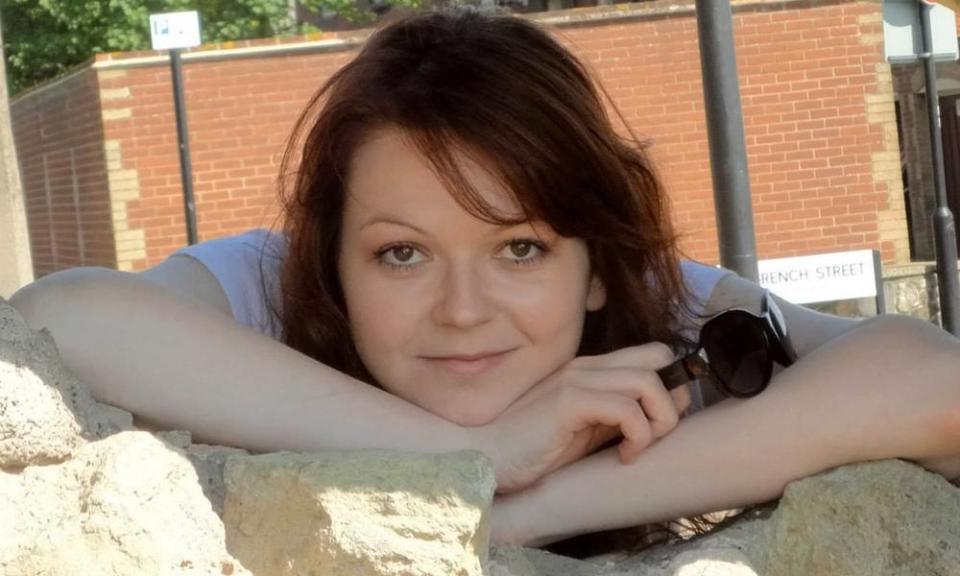Russia expels diplomats in tit-for-tat action over Salisbury attack

Russia will close down the US consulate in St Petersburg and expel 60 American diplomats as it takes tit-for-tat measures against all the nations that have expelled Russian diplomats over the nerve agent attack in Salisbury, the foreign minister Sergei Lavrov has said.
More than 25 countries have announced plans to expel a total of more than 130 Russian diplomats in solidarity with the UK over what has been described as the first chemical weapons attack on European soil since the second world war.
Lavrov said US ambassador Jon Huntsman has been summoned to the foreign ministry, where he was given notice that Russia is responding quid pro quo to the US decision to order 60 Russian diplomats out. The expelled officials include 58 from the US embassy in Moscow and two from its consulate in Ekaterinburg.
Lavrov said Moscow will also respond to the US decision to shut the Russian consulate in Seattle by closing the US consulate in St Petersburg.
The same approach will be applied to other nations that expelled Russian diplomats this week, he added.
Russia was reacting to “absolutely unacceptable actions that are taken against us under very harsh pressure from the United States and Britain under the pretext of the so-called Skripal case”, Lavrov said. He accused London of “forcing everyone to follow an anti-Russian course”.
At the briefing in Moscow, Lavrov accused Britain of “making mockery of international law”. Russia had asked for a meeting with the executive council of the Organisation for the Prohibition of Chemical Weapons (OPCW) on Tuesday to ask questions to “establish the truth”, he said.
Earlier on Thursday the Russian foreign ministry accused Britain of refusing to provide information on Yulia Skripal, who was poisoned along with her father, Sergei, a former spy, in Salisbury this month.
“British authorities finally spoke today about Yulia Skripal’s condition. As people say, she’s on the mend quickly. And we have demanded again that we are given access to Yulia, as a Russian citizen,” Lavrov said, Interfax reported.
Maria Zakharova, a spokeswoman for the ministry, said Britain had declined to cooperate with Russia on the investigation into the poisoning and had not provided any updates on Yulia Skripal despite the fact she was a Russian citizen.
Britain accuses Russia of responsibility for the poisoning, something Moscow vehemently denies.
Zakharova said Britain’s behaviour ran counter to a 1968 consular agreement signed between the then Soviet Union and Britain under which Moscow was meant to have access to its nationals on British soil and to be able to give them advice.
Zakharova said nobody had cancelled the agreement, which she said still had force in international law. The UK is likely to argue that an agreement between the UK and the Soviet Union is not enforceable in court and there is no reason to give Russia access to a woman it apparently tried to kill.

Yulia Skripal is said to be “improving rapidly” in hospital and is no longer in a critical condition. Her father remains in a critical but stable condition, Salisbury NHS trust said on Thursday.
Russia challenged claims made by Dean Haydon, Britain’s counter-terror police chief, that the Skripals first came into contact with the nerve agent from their front door.
“Traces of the nerve agent have been found at some of the other scenes detectives have been working at over the past few weeks, but at lower concentrations to that found at the home address,” Haydon said on Wednesday.
Maj-Gen Alexander Mikhailov, from the Russian security agency FSB, claimed that if it was true the poisoning had happened on the doorstep then the Skripals would have died instantly and would not made it as far as the park where they were found slumped on a bench.
Mikhailov said Theresa May should resign for misleading world opinion.
Both sides are waiting for a report from the OPCW, which sent experts to visit the scene in Salisbury and is studying samples of the nerve agent.
Dmitry Peskov, the press secretary of Russian president Vladimir Putin, said it was difficult to guess what other options for anti-Russian measures Britain could take.
“As for the UK, due to the fact that now it is a fairly unpredictable country in relations with the Russian Federation, it is difficult for us to judge what other options can be considered, and what can be the basis for this,” Peskov said.
In Germany, the government’s decision to expel Russian diplomats this week in solidarity with the UK has widened splits, with senior politicians demanding the UK comes forward with concrete proof of Russian involvement in the poisoning.
The deputy leader of the Social Democrats, Ralf Stegner, criticised the expulsion in an interview for the Süddeutsche Zeitung newspaper, saying he feared an escalation in measures “which can still hurt us very much”. He said: “Appearances and plausibility are not enough to convict.”

 Yahoo News
Yahoo News 